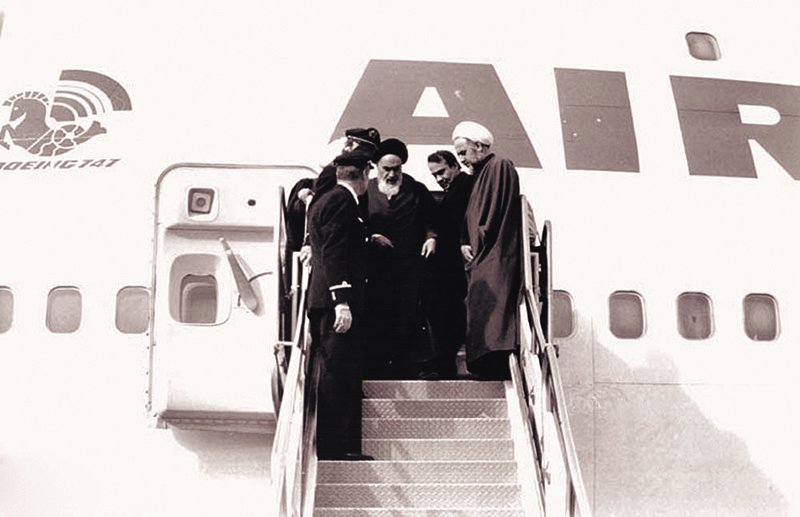On September 25 at 6:00 p.m. theologian Gerald McDermott will speak at Word of Life about Replacement Theology and its destructive impact on theology, the church, and society. Gerald McDermott is an Anglican minister, known for his academic work on the relationship between Christianity and Judaism, especially his book Israel Matters, which explores the significance of Israel and the Jewish people within Christian theology.
McDermott challenges views that diminish Israel’s importance and argues for a “new Christian Zionism” that affirms Israel’s continuing role in God’s plan. For a long time, however, he himself had serious reservations about what was called Christian Zionism. He once believed that the church and those who believed in Jesus Christ had become the new Israel.
“This was the Christian view I’d heard from Reformed theologians such as John Calvin, and one that had become accepted in many Christian traditions—mostly Protestant, Catholic, and a growing number of Evangelical churches,” he writes in Israel Matters, which is being released in Swedish by Theology & Leadership in connection with his visit to Sweden.
In the book, McDermott describes how difficult it was for him to believe that modern Israel could be the fulfillment of biblical prophecy. The fact that most Jews in Israel were either secular or religious-but-non-Messianic seemed to rule out any connection between the modern state and the biblical promises.
But then McDermott began making some astonishing discoveries. One of the first was that the New Testament never calls the church the “new Israel.” This led him to wonder what the actual relationship was between Israel in the Old Testament and the church.
“I’ll never forget the day I stumbled across Paul’s claim that Jews who rejected Jesus were still loved by God, and that God was still faithful to his covenant with them as a people,” McDermott recalls. He had always assumed Paul was speaking only about Jews of the past, before Jesus came.
“When I looked closer, it became clear that Paul was talking about Jews in his own day—people who had heard his preaching about Jesus and rejected it. These Jews, who wanted nothing to do with Jesus, are still ‘loved’ by God, he said.”
He realized there was a single foundational covenant—the Abrahamic covenant—and that the others, such as the Mosaic and Davidic, were developments of that same fundamental covenant-promise to Abraham.
“This new insight—that God continued to honor his covenant with the Jews, even those who rejected Jesus—opened my eyes in other ways as well. For example, I began to see more clearly that many of the great biblical prophets foretold that the Jewish people would one day return to their ancestral land,” he writes.
He also saw that both Jesus and the apostles said Jerusalem and Israel would one day be restored, and that this event would have global consequences.
McDermott describes Israel’s two million Arab citizens, most of whom are grateful to live in the only Middle Eastern country with religious freedom and the region’s most thriving economy.
During a visit to the country, Arab Christians confided to him in private that their real enemy was not the Israeli government but their “Muslim cousins.” They dared not say this openly, fearing reprisals from other Arabs.
In the book, McDermott also addresses the accusation that Israel violates international law, particularly UN Resolution 242, which after the 1967 war called for withdrawal from “territories,” not “all the territories.” The resolution made withdrawal conditional upon Israel’s neighbours recognizing its right to exist and agreeing on secure borders.
“The drafters of the resolution knew Israel would need to retain some territory in order to defend itself. They also suspected its neighbours might never recognize it or agree to defined borders. They were right,” he writes.
September 25 at Word of Life, theologian Göran Lennartsson will also speak, drawing on his book Grafted In: On Christianity’s Jewish Roots. Lennartsson is a Pentecostal pastor, Doctor of Theology in New Testament studies, and director of the Institute for Jewish Studies at the Scandinavian School of Theology.
“Gerald R. McDermott grew up in a theological tradition that did not acknowledge the Jewish people’s role in God’s plan of salvation after the coming of Jesus. Like many others, he absorbed replacement theology—the idea that the church had replaced Israel—from childhood. But his studies led him to discover that the Jews are not rejected, nor has Israel been replaced,” Lennartsson writes in the foreword to the Swedish edition of Israel Matters.
“This changed his perspective, and in Israel Matters we follow him through that process. Replacement theology does not come from the Bible itself, but from Christian tradition. The book is clear, theological, and well-argued, showing that the Jewish people still have a role in God’s purposes, and that the modern nation of Israel is part of that plan,” Lennartsson concludes.


